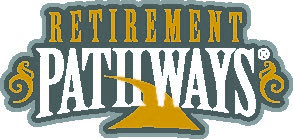SUBSCRIBE
Enter your Name and Email address to get
the newsletter delivered to your inbox.
Please include name of person that directed you to my online newsletter so I can thank them personally.


Dianne Williams Wildt, MBA
Certified Retirement Counselor®
Since 1983 in the financial services and investment industry
Retirement Pathways, Inc.
4500 Bowling Blvd., Suite 100
Louisville, KY 40207
Phone: 502-797-1258
Email: dianne@retirementpathways.com
Website: www.retirementpathways.com

If you read or hear dire predictions about how underfunded Medicare and Social Security are, you would think retirees will soon be in desperate financial shape. The truth is these programs have served retirees for years, and will likely continue to do so in the future. But the reality is that these programs cannot fully fund your retirement, so it’s up to you to ensure your own retirement security by balancing today's needs with saving for tomorrow.
Medicare is also funded by surplus in its trust funds. While you may read headlines about Medicare running out of money by 2026, continuing payments into Medicare’s hospital trust will fund most Part A insurance — hospital insurance — after that date. No such shortfall is predicted for Medicare’s supplemental insurance trust fund, which includes Parts B and D (prescription drug coverage).
When you receive raises, promotions and bonuses, put the newfound money into your retirement accounts — you won’t miss the extra money because you never had it. If you want to save more, investigate traditional and Roth IRAs. And if it’s available through your workplace, consider contributing to a triple tax-free Health Savings Account (HSA).
As you near retirement, compare Medicare insurance policies — they may differ in price. Make sure to avoid penalties and surcharges by purchasing Medicare policies within the allowable timeframe. If you want retirement income you can count on, explore fixed annuities, which may offer you that guarantee. Talk to your financial professional to learn more.
Enter your Name and Email address to get
the newsletter delivered to your inbox.
Please include name of person that directed you to my online newsletter so I can thank them personally.
Enter your Name, Email Address and a short message. We'll respond to you as soon as possible.
Investment advisory services offered through American Capital Management, Inc., a State Registered Investment Advisor. Retirement Pathways, Inc. is independent of American Capital Management, Inc.
Retirement Pathways, Inc. and LTM Marketing Specialists LLC are unrelated companies. This publication was prepared for the publication’s provider by LTM Client Marketing, an unrelated third party. Articles are not written or produced by the named representative.
The information and opinions contained in this web site are obtained from sources believed to be reliable, but their accuracy cannot be guaranteed. The publishers assume no responsibility for errors and omissions or for any damages resulting from the use of the published information. This web site is published with the understanding that it does not render legal, accounting, financial, or other professional advice. Whole or partial reproduction of this web site is forbidden without the written permission of the publisher.